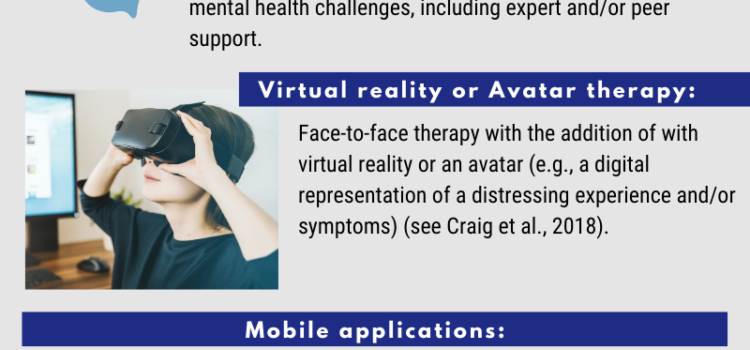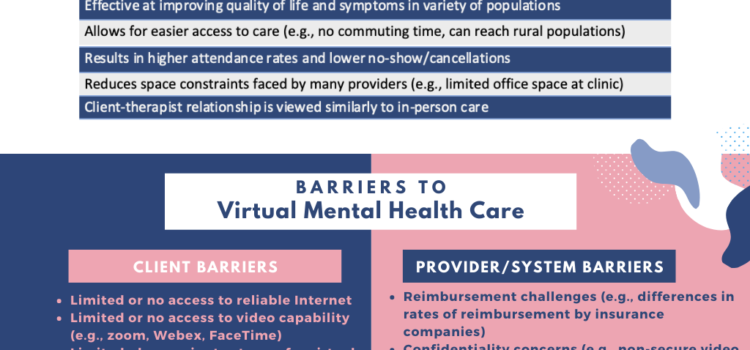Telemedicine: A brief glossary of terms infographic
Telemedicine: A brief glossary of terms


Telemedicine: A brief glossary of terms infographic

Digital health has increased the range of mental health care options and offers promise as healthcare enters a digital age. However, when considering virtual mental health care, both benefits and/or barriers must be considered. We have outlined the commonly described benefits and barriers to virtual mental health care based on the existing research and our own clinical experiences…

COVID-19 has increased the need for persons with mental health challenges to receive care. The use of digital health during a global health crisis is critical for access to urgent care (Torous & Wykes, 2020). Telehealth enables clinicians to continue providing treatment for persons in need of mental health care during a time when in-person visits are very limited. Telehealth helps people remain in contact with clinicians and peer support networks, while they navigate the difficulties generated by COVID-19…

Even prior to the COVID-19 pandemic, there has been academic interest in the study of loneliness, as an increasing number of Americans, at all ages, are living alone. It turns out that this “loneliness epidemic” exacts not only a psychological price but appears to be a risk factor for premature death, comparable to smoking 15 cigarettes per day (1). Why should loneliness literally kill people? One explanation…

COVID-19 is impacting the mental health of people on a global scale that has never been seen before in modern history. In both resource-rich nations like the United States and resource-poor nations like Bangladesh, we see an unprecedented increase in the number of children and adults with new or worsening mental health as a result of the pandemic…